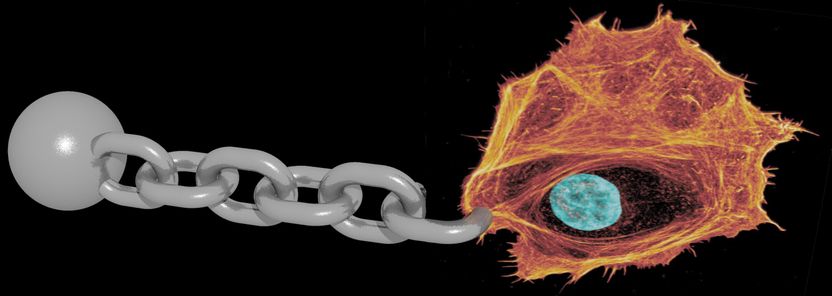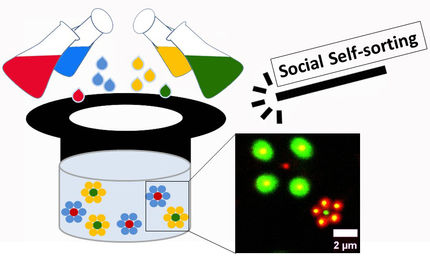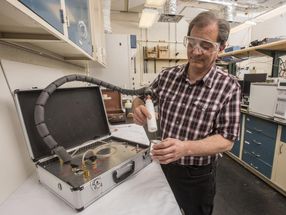How to Retard Time for Cells
Heavy water makes biological clocks tick more slowly
Scientists at Leipzig University, in collaboration with colleagues from Germany and England, have succeeded in reversibly slowing down cellular processes. A team of biophysicists led by Professor Josef Alfons Käs and Dr Jörg Schnauß were able to show in experiments that cells can be transferred into slow motion without changing the temperature. From a physical point of view, such possibilities have so far only been available in the context of the theory of relativity. They recently published their findings in the journal “Advanced Materials”.

Fluorescence images showed that cells did not visibly change morphologically. The slowing down of their dynamics was solely due to the presence of heavy water.
Universität Leipzig
Cells are not only our biological building blocks, but also highly dynamic, active systems. The research group led by Professor Käs has succeeded in significantly reducing these dynamics with heavy water, without damaging the cells.
“Generally, a lot of people know heavy water for its important technical use in nuclear power plants. We took a different approach here and were able to show that for cells, time – or, more specifically, their dynamics – can be significantly slowed down in the presence of heavy water,” said Käs, who has devoted himself to researching the physical properties of cells and tissue. The research showed on various biological levels that the movement of cells and their dynamics was only taking place in slow motion. “It is very intriguing that cellular dynamics can be slowed down at the same temperature. So far, only the theory of relativity has offered such possibilities in the physical context,” explained Käs. He added that the results form the basis of a method to offer cells and organs longer-lasting protection against degeneration.
The researchers confirmed this effect with a variety of complementary methods and attributed the observations to an increased interaction between the structural proteins. “Heavy water also forms hydrogen bonds, but these are stronger than in normal aqueous environments. As a result, structural proteins such as actin seem to interact more strongly with one another and briefly stick together. What is spectacular here is that the effects are reversible, with cells showing their native properties again as soon as they are transferred into a normal aqueous medium,” said Dr Jörg Schnauß. “What is even more astonishing is that these changes show the fingerprint of a passive material. However, cells are highly active and far from thermodynamic equilibrium. If they behave like a passive material, they are usually dead,” added Käs.
However, as the researchers were able to show, this was not the case in their experiments. They now hope to be able to use the knowledge gained to keep cells or even tissue vital for longer. If this approach is confirmed, heavy water could be used for longer storage times, for example during organ transplants.
Original publication
Other news from the department science

Get the life science industry in your inbox
From now on, don't miss a thing: Our newsletter for biotechnology, pharma and life sciences brings you up to date every Tuesday and Thursday. The latest industry news, product highlights and innovations - compact and easy to understand in your inbox. Researched by us so you don't have to.




















































